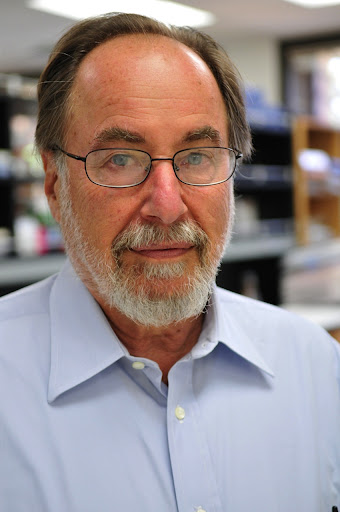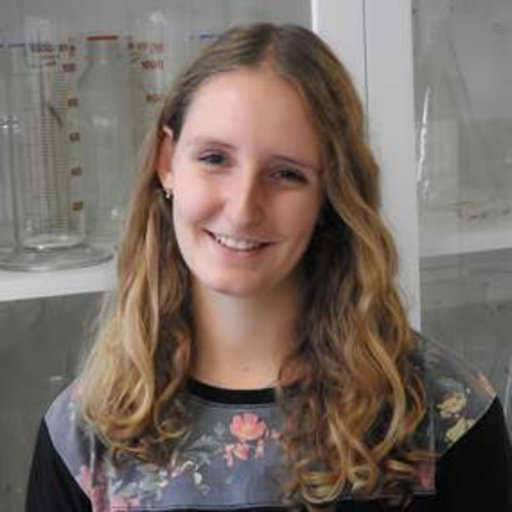Baltimore wins special Lasker; Cross-cultural understanding scholarship for Markussen
Special Lasker award for Baltimore
David Baltimore, a Nobel laureate and distinguished professor at the California Institute of Technology, has received a Lasker~Koshland Special Achievement Award in Medical Science, a recognition of his 60 years of achievements in biomedical research. In that time, his lab has studied many topics, but in general his research has focused on virology, immunity and cancer.

Baltimore started his career working in animal viruses, on a hunch that — as phages had done for bacteria — viruses might give considerable insight into the workings of animal cells. He earned his Ph.D. at Rockefeller University and conducted postdocs at the Massachusetts Institute of Technology and Albert Einstein College of Medicine. He went to the Salk institute to work with Renato Dulbecco as a research assistant for several years, then joined the faculty at MIT as an associate professor in 1968.
There, while trying to understand RNA viruses that can cause cancer, Baltimore discovered the enzyme reverse transcriptase, which does the opposite of RNA polymerase; it uses an RNA template to synthesize DNA. At the time, when the field subscribed to the central dogma that DNA codes for RNA and RNA codes for protein, it was a groundbreaking finding. The discovery also provided insight for later understanding the human immunodeficiency virus, which became a major public health concern about 10 years later. Reverse transcription is also important in telomere maintenance and has been widely used as a laboratory tool to study RNA, for example, in generating cDNA libraries for RNA sequencing. Baltimore shared the 1975 Nobel Prize in physiology or medicine with Howard Temin and Renato Dulbecco.
A postdoc in Baltimore’s lab discovered the transcription factor nuclear factor kappa-light-chain-enhancer of activated B cells, or NF-κB, while studying how cells control the expression of antibody genes; later, the lab outlined how genetic recombination leads to the diversity of those antibodies. The lab also studied the role of microRNA in the immune system and the possibility of treating HIV and cancers with gene therapy.
After founding the Whitehead Institute at MIT and serving for some years as its director, Baltimore joined the faculty at CalTech, where he served as president from 1997 to 2006. He continued to run his lab at CalTech until 2019. The cofounder of three biotechnology companies and holder of 100 patents, he now serves on the boards of directors of two companies and the scientific advisory boards of three.
Baltimore helped Paul Berg organize the Asilomar Conference on Recombinant DNA in 1975, which led to a moratorium on certain types of experiments. In 1986, he was part of a National Academies of Science report on HIV concluding that massive investment in studying the virus was required. And in December 2018, when He Jiankui announced at a summit on human genome editing that he had edited the genomes of two infants, Baltimore was on the scene; he was the first to take the podium and, with other prominent CRISPR scientists including Jennifer Doudna, denounced He's actions.
Baltimore’s honors, in addition to the Nobel, the National Medal of Science, and a long list of honorary degrees, include a 2.1 kilometer asteroid that bears his name.
Cross-cultural understanding scholarship for Markussen
Kia Markussen, a graduate student at the University of Kentucky College of Medicine, has received the university's scholarship for cross-cultural understanding.

Markussen, who is from Denmark, studies neuronal metabolism and protein glycosylation, and how they change in neurodegenerative diseases. In a paper last year on Lafora Disease, a genetic disorder of glycogen synthesis that causes seizures and neurodegeneration, she and colleagues in Matthew Gentry’s lab showed that the mutations behind the disease disrupt oxidative glucose metabolism, but have different effects on neurons than on astrocytes, another type of brain cell. She earned her undergraduate degree at the University of Copenhagen, where she also studied neurometabolism in health and disease.
In addition to her research, Markussen serves as the co-chair of an international students' committee on the university's graduate student congress. The scholarship announcement also lauds her "commitment to building cross-cultural understanding through work in her department."
Enjoy reading ASBMB Today?
Become a member to receive the print edition four times a year and the digital edition monthly.
Learn moreGet the latest from ASBMB Today
Enter your email address, and we’ll send you a weekly email with recent articles, interviews and more.
Latest in People
People highlights or most popular articles

2026 ASBMB election results
Meet the new Council members and Nominating Committee member.

Simcox wins SACNAS mentorship award
She was recognized for her sustained excellence in mentorship and was honored at SACNAS’ 2025 National Conference.

From humble beginnings to unlocking lysosomal secrets
Monther Abu–Remaileh will receive the ASBMB’s 2026 Walter A. Shaw Young Investigator Award in Lipid Research at the ASBMB Annual Meeting, March 7-10 in Washington, D.C.

Chemistry meets biology to thwart parasites
Margaret Phillips will receive the Alice and C. C. Wang Award in Molecular Parasitology at the ASBMB Annual Meeting, March 7-10 in Washington, D.C.

ASBMB announces 2026 JBC/Tabor awardees
The seven awardees are first authors of outstanding papers published in 2025 in the Journal of Biological Chemistry.

Decoding how bacteria flip host’s molecular switches
Kim Orth will receive the Earl and Thressa Stadtman Distinguished Scientists Award at the ASBMB Annual Meeting, March 7–10, just outside of Washington, D.C.
